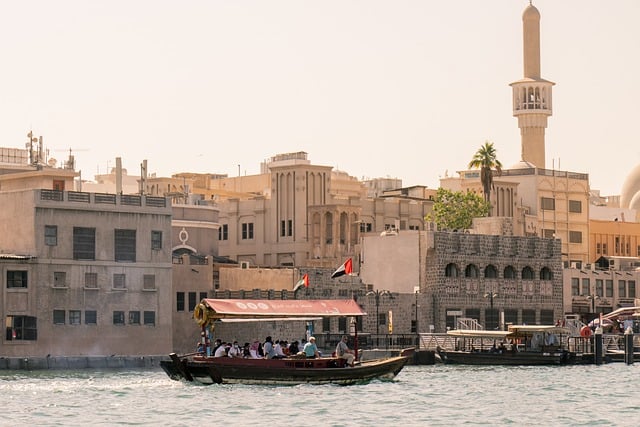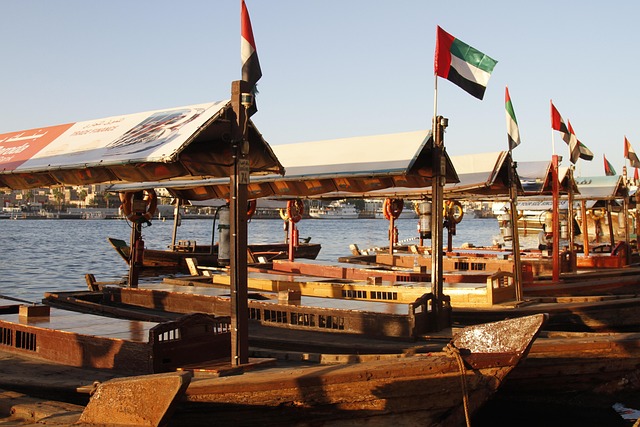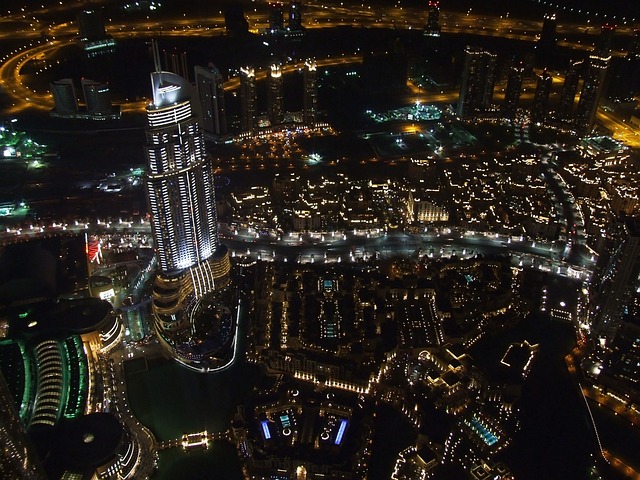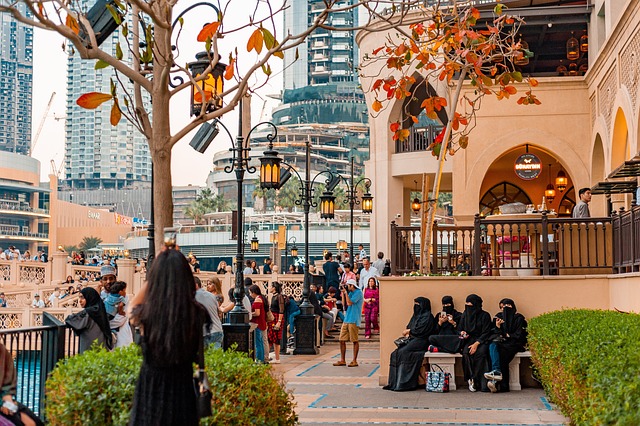The Hatta Dubai Tour exemplifies eco-tourism, offering travelers an immersive experience in nature reserves that supports conservation and local communities. These reserves preserve biodiversity, educate visitors, and facilitate ecological research. The tour blends adventure with conservation activities, contributing to economic growth while minimizing environmental impact. Responsible tourism practices, including small group sizes and eco-friendly accommodations, ensure the long-term health of natural areas. By engaging in such experiences, tourists support wildlife preservation and cultural heritage, making eco-tourism a powerful tool for balancing economic development and environmental stewardship.
“Uncover the allure of eco-tourism as we explore nature reserves and conservation tours, offering a unique blend of sustainable travel and environmental stewardship. From understanding the core principles of this green approach to highlighting successful initiatives like the Hatta Dubai Tour, this article provides an in-depth guide.
Discover the global impact of eco-tourism, its benefits for local communities, and the planet’s preservation. Learn about diverse activities within nature reserves and best practices for ethical experiences. Get practical tips for planning your eco-friendly visit, all while envisioning the future of this expanding industry.”
- Understanding Eco-Tourism: A Green Approach to Travel
- The Role of Nature Reserves in Conservation Efforts
- Hatta Dubai Tour: Exploring a Model for Sustainable Tourism
- Types of Eco-Tourism Activities in Nature Reserves
- Benefits for Local Communities and the Environment
- Best Practices for Ethical Eco-Tourism Experiences
- Planning Your Eco-Friendly Reserve Visit: Tips and Considerations
- The Future of Eco-Tourism: Global Trends and Impact
Understanding Eco-Tourism: A Green Approach to Travel

Eco-tourism is a responsible travel concept that focuses on exploring natural environments while contributing to conservation efforts and supporting local communities. It encourages travelers to immerse themselves in untouched ecosystems, such as nature reserves, and learn about the importance of biodiversity and ecological preservation. By choosing eco-tourism options, like conservation tours, visitors play an active role in protecting fragile habitats and promoting sustainable practices.
In Dubai, even with its urban developments, there are incredible opportunities for eco-tourism, including the Hatta Dubai tour. This unique experience allows travelers to discover the region’s natural beauty while engaging in activities that benefit local conservation initiatives. The tour showcases the area’s rich biodiversity, from lush mountains to diverse wildlife, and educates participants on sustainable tourism practices, ensuring a memorable journey that supports environmental protection efforts.
The Role of Nature Reserves in Conservation Efforts

Nature reserves play a pivotal role in conservation efforts, especially in urbanized areas like Dubai. These protected landscapes serve as sanctuaries for diverse flora and fauna, many of which are endemic or threatened species. Hatta Dubai tours offer visitors a unique opportunity to explore these preserved habitats, fostering an appreciation for nature’s delicate balance.
The establishment and management of nature reserves facilitate the long-term preservation of ecosystems, providing crucial habitats for wildlife and enabling scientific research. Additionally, they contribute significantly to environmental education, raising awareness among locals and tourists alike about the importance of conservation. These efforts are vital in ensuring the survival of species and maintaining the ecological integrity of regions like Hatta, Dubai, for future generations.
Hatta Dubai Tour: Exploring a Model for Sustainable Tourism

The Hatta Dubai Tour offers a captivating glimpse into a model for sustainable tourism, showcasing how nature reserves and conservation efforts can thrive in harmony with economic growth. This unique experience highlights the balance between preserving the region’s rich biodiversity and providing visitors with an unforgettable adventure. The tour takes you through breathtaking landscapes, where you can witness diverse flora and fauna species that have been carefully protected and nurtured over the years.
By participating in the Hatta Dubai Tour, tourists actively contribute to the conservation process while immersing themselves in a vibrant ecosystem. The initiative emphasizes responsible travel practices, ensuring minimal environmental impact and promoting cultural awareness. This model not only conserves the area’s natural wonders but also fosters a deeper understanding of ecological preservation among visitors, making it an inspiring example for eco-tourism worldwide.
Types of Eco-Tourism Activities in Nature Reserves

In nature reserves like those found in Hatta, Dubai, eco-tourism activities offer a unique blend of adventure and conservation. Visitors can engage in various experiences that range from guided hiking trails through lush landscapes to birdwatching excursions designed to spot rare species. These tours often include educational components, providing insights into the local ecosystem and the importance of conservation efforts.
One popular activity is wildlife photography tours, allowing enthusiasts to capture the beauty of native animals in their natural habitats. Other options include environmental interpretation sessions led by experts who share knowledge about the reserve’s flora and fauna. Additionally, some tours focus on sustainable practices, teaching visitors how to minimize their impact while exploring, ensuring that these precious nature reserves thrive for future generations to enjoy during a Hatta Dubai tour.
Benefits for Local Communities and the Environment

Eco-tourism in nature reserves, such as those offered by a Hatta Dubai tour, brings numerous advantages for both local communities and the environment. For locals, it provides an economic boost as visitors contribute to the region’s revenue through accommodation, dining, and activities. This sustainable approach ensures that funds remain within the community, fostering development while preserving their cultural heritage.
Moreover, eco-tourism promotes environmental conservation by raising awareness among visitors about the delicate balance of natural ecosystems. It encourages responsible practices, ensuring that future generations can also experience these untouched landscapes. The positive impact extends to wildlife preservation and ecological restoration efforts, making it a powerful tool for balancing economic growth with environmental stewardship.
Best Practices for Ethical Eco-Tourism Experiences

When engaging in eco-tourism within nature reserves, such as the Hatta Dubai Tour, it’s paramount to uphold ethical standards to minimise environmental impact and support local conservation efforts. Practising responsible tourism involves adhering to guidelines that prioritise non-intrusive interactions with wildlife, preserving natural habitats, and respecting cultural heritage sites. Tour operators should ensure small group sizes to avoid overcrowding, implement waste management systems, and educate visitors about sustainable practices.
Accommodation options should focus on eco-friendly accommodations, using renewable energy sources and promoting recycling initiatives. Guests are encouraged to participate in conservation tours, where they can learn about local flora and fauna, contribute to research projects, and engage in activities that support the preservation of these precious ecosystems. By following these best practices, visitors can enjoy meaningful experiences while preserving the natural beauty and biodiversity for future generations.
Planning Your Eco-Friendly Reserve Visit: Tips and Considerations

When planning your eco-friendly reserve visit, especially in Dubai’s stunning natural areas like Hatta, consider a few key tips. Opt for conservation-focused tours that prioritize minimal ecological impact and respect local ecosystems. Choose operators committed to sustainable practices, ensuring your visit contributes positively to nature preservation.
Prioritize responsible behavior during your stay: stick to marked trails, avoid disturbing wildlife, and support local initiatives that promote environmental education. Remember, the goal is not just to observe but also to understand and appreciate the delicate balance of these reserves, making your Hatta Dubai tour an enriching experience for both you and the environment.
The Future of Eco-Tourism: Global Trends and Impact

The future of eco-tourism is bright, with global trends indicating a growing awareness and appreciation for sustainable travel experiences. As consumers become more conscious of their environmental impact, they seek authentic connections with nature while contributing positively to local communities and conservation efforts. This shift towards responsible tourism presents exciting opportunities for destinations like Hatta Dubai, which can position itself as a leader in eco-friendly practices.
Hatta Dubai tour operators are responding by integrating conservation tours, allowing visitors to immerse themselves in the region’s diverse ecosystems while learning about their preservation. By offering educational experiences that highlight local flora and fauna, these tours not only attract nature enthusiasts but also foster a deeper understanding of environmental stewardship. With such innovative approaches, eco-tourism is poised to shape the travel industry, ensuring a sustainable future for both destinations and the natural world they aim to protect.
Eco-tourism, as exemplified by the successful Hatta Dubai Tour, offers a sustainable path forward for conservation efforts while providing unique experiences. By engaging in activities within nature reserves worldwide, travelers can contribute positively to local communities and the environment. Implementing best practices ensures ethical eco-tourism, fostering a harmonious relationship between visitors, nature, and indigenous cultures. As global trends continue to evolve, the future of eco-tourism looks promising, with increasing awareness driving positive change and inspiring more responsible travel experiences.
